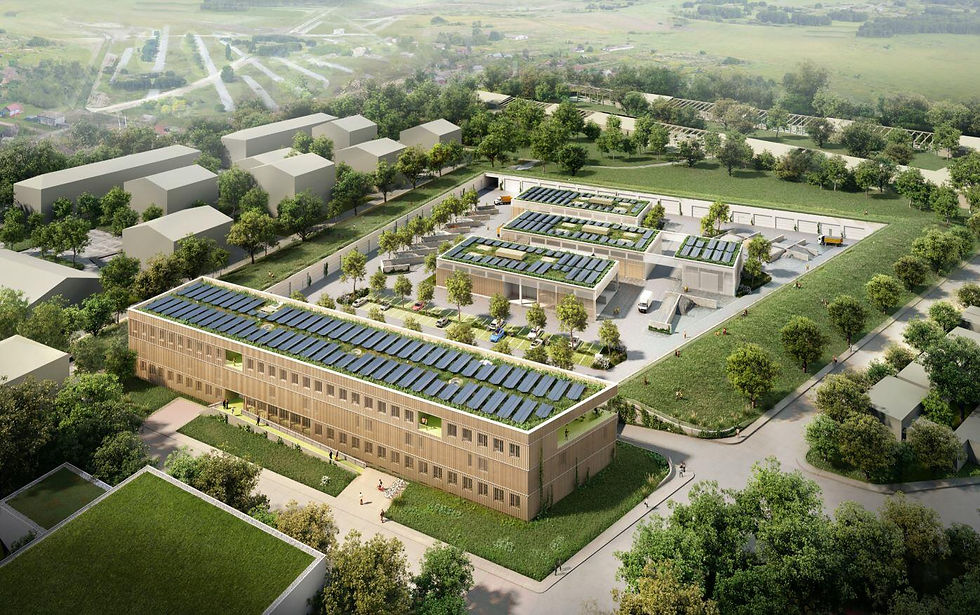

Arrival City - Inclusive Urbanism for Berlin
Berlin, Concept, 2018
This master’s thesis explores Berlin as an “Arrival City” — a place where migration, diversity, and urban transformation converge. Inspired by Doug Saunders’ concept, the project investigates how densification and community-oriented design can strengthen integration in socio-economically diverse neighborhoods. The proposal envisions six permeable multi-blocks that mix housing, cooperative development, and shared spaces, creating vibrant urban quarters that support both everyday life and cultural exchange. Collective living and mixed-use programs turn the site into a small city within the city.

Today’s migration to Europe recalls the dynamics described in Doug Saunders’ book Arrival City, where newcomers establish homes without government aid, acquire skills, and build livelihoods through microenterprises. While such informal settlements are not models for European cities, they offer valuable lessons in adaptability, resilience, and social infrastructure. This thesis applies these insights to Berlin, chosen as a design site due to its socio-economic diversity and vibrant platforms for integration that bridge social and political barriers.
The project area lies south of Berlin’s historic center, adjacent to the Friedrichshain-Kreuzberg district, characterized by large prefabricated housing estates. The design approach proposes densifying the existing urban fabric and articulating clearer boundaries, while maintaining permeability and openness. Density here is not only physical but social — it enables cultural institutions, education, commerce, and exchange to thrive.
The site is organized into six multi-blocks that combine diverse typologies, flexible housing units, and shared neighborhood courtyards. Cooperative building groups and community-led development drive the process, fostering inclusivity and addressing integration challenges. By weaving residential, commercial, and cultural functions into mixed-use environments, the project creates a resilient framework for urban interaction.
Shared facilities — including rooftop terraces, event spaces, guest rooms, game rooms, and urban gardens — encourage social encounters and collective activity, echoing the informal gathering spaces of self-built settlements. By merging living, working, and recreational uses and opening the architecture to the surrounding city, the project generates a vibrant micro-urbanism. In this way, the Arrival City vision transforms into a model of inclusive urbanism for Berlin: a place where diversity becomes the foundation for shared urban futures.


© 2025 by slo-tek. All rights reserved.
Creating spaces and products at a gentler pace — guided by hands, rooted in our surroundings, mindful of people and the planet.
dipayan@slo-tek.com
anne@slo-tek.com
+91 8787575709
Ahmedabad, Gujarat
















